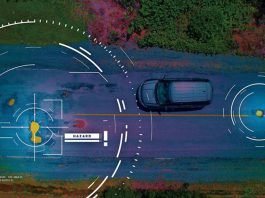The European Commission has announced that the initial Destination Earth (DestinE) digital twin system has been activated.
DestinE is a flagship EU project that will create a digital twin of the Earth to help combat climate change.
The DestinE system will leverage Europe’s High-performance computers (EuroHPC), such as the LUMI supercomputer in Kajaani, Finland, to simulate extreme weather events and the impacts of climate change.
This innovative digital twin technology will be pivotal in optimising mitigation and adaptation strategies for growing climate threats.
The technology was launched today by EU Executive Vice-President Margrethe Vestager and the Finnish Minister for Employment, Arto Satonen.
Vestager commented: “The launch of the initial DestinE is a true game changer in our fight against climate change. DestinE will provide us with a highly accurate twin of the Earth.
“It means that we can observe environmental challenges, which can help us predict future scenarios – as we have never done before.
“This first phase shows how much we can achieve when Europe puts together its scientific excellence and its massive supercomputing power. Today, the future is literally at our fingertips.”
How does DestinE work?
DestinE, launched in 2022 by the European Commission, partners with the European Centre for Medium-Range Weather Forecasts (ECMWF), the European Space Agency (ESA), and the European Organisation for the Exploitation of Meteorological Satellites (EUMETSAT).
Now operational, the system will continuously evolve and, by 2030, should complete a full digital twin of the Earth.
The initial system features of DestinE include the Core Service Platform, which provides user access to services, tools, and applications.
It also includes two high-resolution digital twins: one focused on climate change adaptation and another on weather-induced extremes, enabling scenario analysis and testing.
Additionally, the DestinE Data Lake offers seamless access to data from these digital twins and numerous other sources, including Copernicus, the EU’s Earth observation programme.
This initiative will enhance Europe’s preparedness for natural disasters, climate change adaptation, and the assessment of potential socioeconomic and policy impacts.
EU funding support
The Digital Europe programme has allocated over €315m in funding. The first phase, now complete, and the ongoing second phase, each received over €150m.
The third phase’s funding will be determined by the final Digital Europe programme for 2025-2027, which is in progress.
Additionally, Horizon Europe has provided further funding for developing additional digital twin capabilities.








